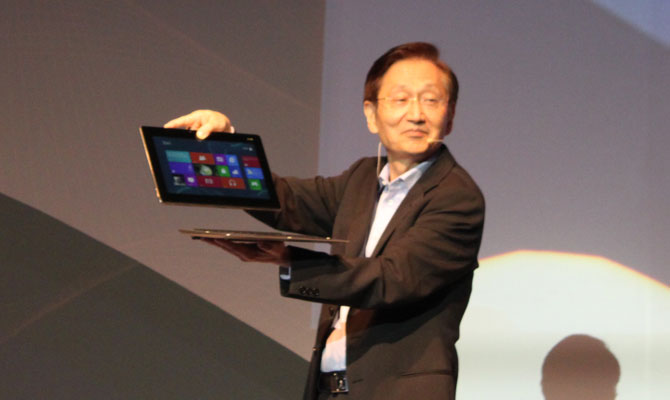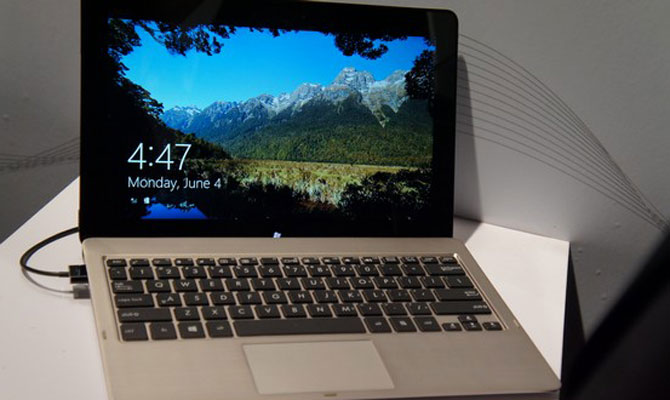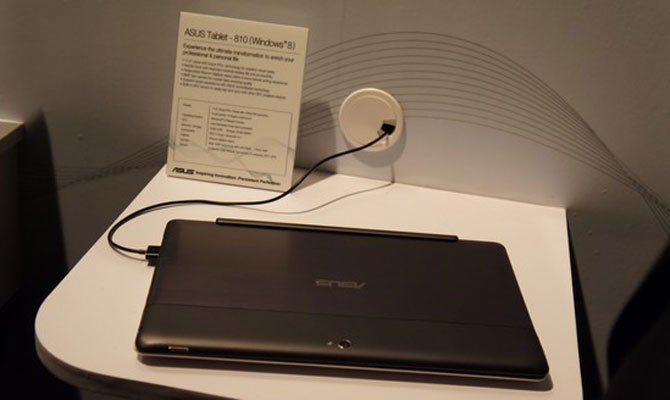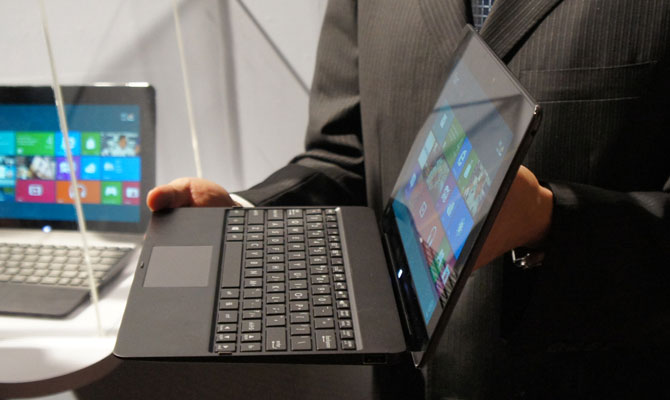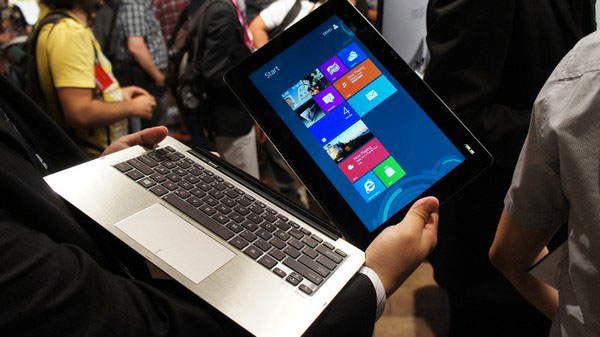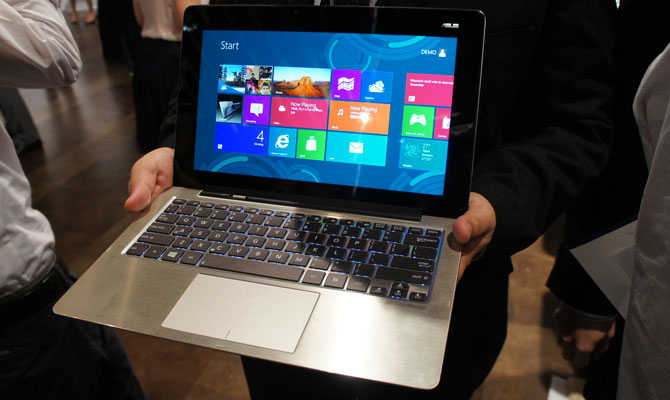ASUS Debuts Three Transforming Windows 8 Tablet-Laptop Hybrids
When it comes to Windows 8 devices, ASUS believes you shouldn't have to buy both a tablet and a notebook. Today at Computex Taipei, the company announced three different devices with detachable keyboards that allow them to serve as either slates or clamshell-style notebooks. Two of the devices, the ASUS Tablet 810 and ASUS Tablet 600, are marketed as tablets that transform into laptops, while the ASUS Transformer Book is being sold as a laptop that turns into a tablet, but in reality all three provide both clamshell and slate functionality.
ASUS Tablet 810
The 11.6-inch ASUS Tablet 810 has only a 1366 x 768 display, a relatively low resolution in comparison to Windows 8 products like the ASUS Taichi, which has a full HD screen at the same size. Nevertheless, the device has an uber-bright Super IPS+ display that supports 10-point multi-touch and Wacom Stylus use. An 8-MP back-facing camera with LED Flash and a 2-MP front camera provide imaging capabilities while an NFC chip lets it sync with other NFC-powered devices.
At 0.3 inches thick, the Tablet 810 should feel nice and light in the hand, but we're curious to see how it performs, considering that it is powered by a "next-generation Intel Atom Processor" with just 2GB of RAM and 64GB of storage. Will Atom be enough to power Windows 8 effectively?
ASUS didn't spend much time demoing the Tablet 810 at its Computex press conference so we can't really say how it performs. We can say it looks the most like the original Eee Pad Transformer with its greyish color scheme and dark brown keys.
ASUS Tablet 600
Powered by an Nvidia Tegra 3 processor, the 10.1-inch ASUS Tablet 600 runs Windows 8 RT, the version of Windows that's designed specifically for ARM-based devices. Though ASUS didn't demonstrate how well the device performs, Nvidia released the demo video below showing the system's smooth performance.
Sign up to receive The Snapshot, a free special dispatch from Laptop Mag, in your inbox.
Like the Tablet 810, the Tablet 600 also has a 1366 x 768 display with Super IPS+, though the resolution should appear sharper on the smaller screen. Also like the 810, the Tablet 610 has 8-MP and 2-MP cameras, along with an NFC chip.
We had the opportunity to see the Tablet 600 in person at the ASUS press event, and it was clearly a lot better looking than its larger cousin. Both the tablet and its keyboard are sleek and black, and, when docked, the bottom of the slate actually sits below the deck, hiding the hinge like a snazzy laptop. With this sunken hinge, the docked Tablet 600 really looks like a 10-inch notebook, not just a tablet slapped onto a keyboard dock.
ASUS Transformer Book
ASUS touts the Transformer Book as the "world's first convertible notebook" because the screen pops off to become a slate. Though notebook-makers have been selling "convertible" notebooks for years, these systems have had screens that swiveled around instead of those that popped off, so ASUS is first in that regard.
Available in 11.6-, 13- or 14-inch form factors, the Transformer Book comes with a full HD (1920 x 1080) IPS Display at all three sizes. The device has a blazing-fast Intel 3rd Generation Core i7 CPU, discrete graphics--which we assume are from an Nvidia GT600 series GPU but ASUS didn't say--4GB of RAM, SSD and hard drive storage and USB 3.0 ports. Like many ASUS products, it has SonicMaster audio technology. The Transformer Book also has an HD front-facing camera and 5-MP rear camera.
ASUS didn't do much to demo the Transformer Book's capabilities at its Computex launch event, but it did show the Transformer Book's detach mechanism, which is pretty much identical to the lock we've seen on the Eee Pad Transformer tablet series. While there's nothing wrong with the mechanism--we've used it successfully many times on the Transformer and Transformer Prime tablets--the prominent lock slide makes the Transformer Book look more like a tablet that's attached to a keyboard than a notebook that just happens to have an ejectable screen. If only ASUS could have used a sunken hinge design on this device.

